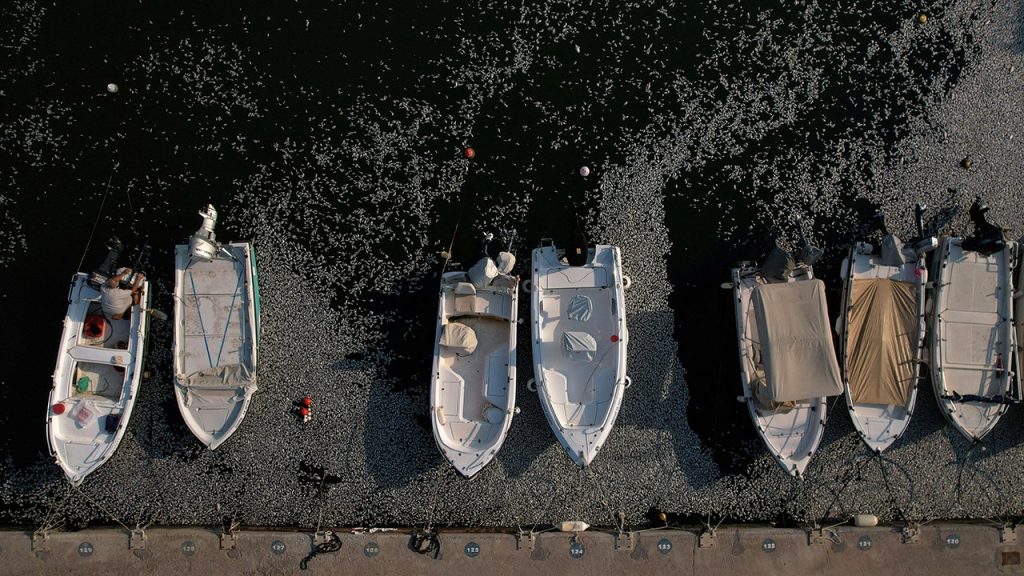Greek authorities in the central city of Volos have been working to clean up hundreds of thousands of dead fish that have washed up in the tourist port this week. The fish were displaced from their usual freshwater habitats during flooding last year and the floating carcasses created a silvery blanket across the port, causing a strong stench that alarmed residents and authorities. Trawlers have been used to collect the dead fish, with more than 40 tonnes already collected within a 24-hour period. The mayor of Volos, Achilleas Beos, expressed frustration with the government for not addressing the issue sooner.
The situation in Volos has been described as a potential environmental disaster with the rotting fish posing a threat to other species in the area. Experts believe that the fish were killed when they came into contact with saltwater after being displaced from their freshwater habitats by historic floods last year. Mayor Beos criticized the government for not taking preventative measures, such as placing a protective net at the mouth of the river leading into Volos. Local prosecutors have launched an investigation into the situation and the Greek environment ministry has yet to comment on the issue.
The impact of extreme weather events in Greece, such as wildfires and flooding, have been linked to climate change by scientists. This latest incident with the dead fish in Volos is another example of the consequences of erratic weather patterns that have been observed in the region. Dimosthenis Bakoyiannis, a beach restaurant owner near Volos, has reported a significant drop in turnover this summer due to lower tourism numbers following the flooding. The timing of these events has further exacerbated the economic impact on local businesses, as the tourist season is effectively over.
The Greek-flagged oil tanker that was adrift and on fire after a suspected Houthi attack is another example of the challenges faced by Greece in recent days. The incident added to the concerns of residents and authorities in Volos who were already dealing with the cleanup of dead fish in the port. The combined impact of environmental disasters, such as the flooding last year and the present situation with the dead fish, highlights the urgent need for proactive measures to address climate change and its consequences in Greece.
The coordination between local authorities, fishermen, and other stakeholders in Volos has been crucial in the cleanup efforts to remove the dead fish from the port. The influx of dead fish poses a serious challenge to the environment and local economy, requiring swift and effective action to mitigate the damage. The response to this crisis will also serve as a lesson for better preparation in the face of future extreme weather events, emphasizing the importance of preventive measures to protect both the environment and local communities in Greece.
As Greece continues to grapple with the impacts of climate change, the incidents in Volos serve as a stark reminder of the urgent need for adaptation and mitigation strategies. The cleanup efforts in the tourist port demonstrate the resilience and determination of the community to address the immediate consequences of environmental disasters. Moving forward, greater collaboration between government agencies, local communities, and scientific experts will be essential in developing sustainable solutions to the challenges posed by climate change in Greece and beyond.


